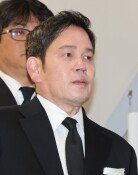A cautious approach needed for benchmark rate cuts
A cautious approach needed for benchmark rate cuts
Posted July. 17, 2024 07:43,
Updated July. 17, 2024 07:43
The South Korean government and ruling party are increasing pressure on the Bank of Korea (BOK) to lower the benchmark interest rate. Members of the People Power Party's Special Committee on Stabilizing People's Livelihoods urged a rate cut during a meeting attended by BOK officials. This follows similar calls from the Presidential Chief of Staff for Policy and the Deputy Prime Minister for Economic Affairs, cranking up pressure on the central bank.
The Special Committee cited a recent report by the Korea Development Institute (KDI), which identified prolonged high interest rates as a critical factor behind long-term domestic consumption downturns. They also pointed to Deputy Prime Minister Choi Sang-mok’s remarks attributing small business difficulties to high interest rates to reinforce their demand for a rate reduction. Despite BOK Governor Lee Chang-yong’s statement last week that the Monetary Policy Committee would make independent decisions on interest rates, the pressure for a cut persists.
South Korea’s current benchmark interest rate stands at 3.5%. There are concerns over potential negative effects if South Korea lowers its rate ahead of the U.S. Federal Reserve, whose rate is currently 2 percentage points higher. A widening rate gap could devalue the Korean won, raise the won-dollar exchange rate, and increase import prices. Last month, import prices rose despite falling international oil prices due to the rising exchange rate.
Lowering the benchmark interest rate could reduce mortgage rates, potentially fueling speculative real estate investments and accelerating the rise in apartment prices in the Seoul metropolitan area. Although consumer prices only increased by 2.4% year-on-year last month, South Korea’s inflation calculation does not include owner-occupied housing costs. Including these costs, as is done in advanced economies, would likely show a higher inflation rate. Additionally, further hikes in electricity and gas rates are expected in the latter half of the year due to the astronomical deficits at Korea Electric Power Corporation and other related state-owned corporations. This would further drive up inflation.
Disrupting the central bank’s monetary policy stance is risky because it is a blind pursuit of stimulating the domestic market without considering both domestic and international economic conditions. Paul Volcker, the former Federal Reserve Chairman known as an “inflation fighter,” made the mistake of lowering rates in 1980 under pressure from the Carter administration, only to raise them significantly later as inflation surged. Forcing the BOK into a similar mistake for short-term economic gains without considering the potential long-term consequences of bloated inflation must be avoided at any cost.
Headline News
- Joint investigation headquarters asks Yoon to appear at the investigation office
- KDIC colonel: Cable ties and hoods to control NEC staff were prepared
- Results of real estate development diverged by accessibility to Gangnam
- New budget proposal reflecting Trump’s demand rejected
- Son Heung-min scores winning corner kick







